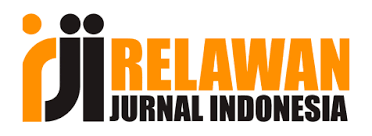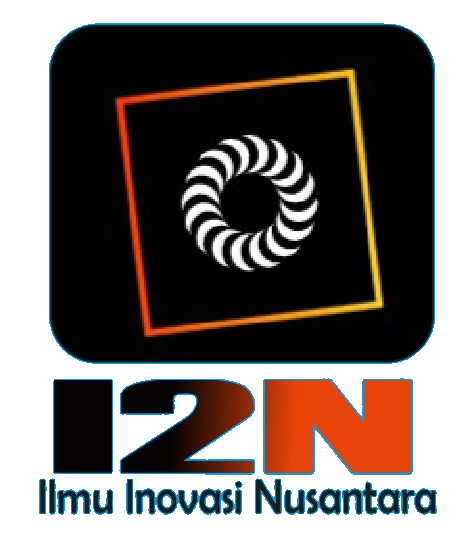Enhancing Communicative Competence in Generation Z Linguistic Students Through Reflective Methods
DOI:
https://doi.org/10.58557/(ijeh).v5i4.361Kata Kunci:
Communicative Competence, Generation Z, Linguistic Students, Reflection, Reflective methodsAbstrak
This article explores the use of reflective methods as a pedagogical tool to develop communicative competence among linguistics students from Generation Z. The study highlights the need to adapt teaching strategies to the characteristics of modern university students, who often struggle with superficial information processing and reduced emotional intelligence. Reflective methods offer a promising solution by encouraging deeper cognitive engagement, metacognitive awareness, and critical thinking skills essential for communicative competence. Using a mixed-methods approach, the research combines theoretical analysis with empirical investigation. The theoretical framework is grounded in the CEFR model, which identifies the pragmatic component as the most challenging for students. The empirical phase involved a three-stage intervention—diagnostic, formative, and control—conducted with first-year linguistics students at NUST MISIS, Russia. A targeted set of tasks was developed based on four selected reflective methods to address weaknesses identified during the diagnostic stage. Pre- and post-test assessments of impromptu speech revealed significant improvement, with over half of the participants enhancing their performance. These results confirm the effectiveness of reflective methods in fostering communicative competence and suggest that the task model presented in this study can serve as a practical framework for addressing the communicative challenges specific to Generation Z learners
Referensi
Almabekova, O.A. (2014). Reflection and Communication in Teaching English for Professional Purposes. Pedagogical Sciences, 1, 1–9.
Antonova, K.N. (2019). Features of Teaching the Discipline "Foreign Language" to Generation Z. Federal State Budgetary Educational Institution of Higher Education «Saint Petersburg State University of Industrial Technologies and Design», 101–105. https://elibrary.ru/item.asp?id=41883152.
Baklagova, Yu.V. (2020). The Role of Reflection in the Formation of Foreign Language Communicative Competence. Kuban State University, 16–24.
Brookfield, S. D. (2017). Becoming a critically reflective teacher (2nd ed.). Jossey-Bass.
Bukharbaeva, A.R. (2020). Clip Thinking of Generation Z: Methods for Developing Students' Creative Potential. RUDN Journal of Literary Studies and Journalism, 4, 787–796.
Canale, M. (1983). From Communicative Competence to Communicative Language Pedagogy. Language and Communication, Longman.
Chicca, J., & Shellenbarger, T. (2018). Generation Z: Approaches and teaching-learning practices for nursing professional development practitioners. Journal for Nurses in Professional Development, 34(5), 250–255. https://doi.org/10.1097/NND.0000000000000461
Chomsky, N. (1972). Aspects of the Theory of Syntax (ed. by V. A. Zvegintsev). Moscow University Press.
Council of Europe. Common European Framework of Reference for Languages: Learning, Teaching, Assessment. Companion Volume with New Descriptors. https://rm.coe.int/common-european-framework-of-reference-for-languages-learning-teaching/16809ea0d4.
Daricheva, M.V., Dorozhkina , D.S., & Grishina , I.A. (2022). The Use of Interactive Methods in Teaching Speaking in English Classes. Problems of Modern Pedagogical Education, 75(4), 99–102.
Golubeva, M.V. (2011). Reflective Learning for an Active Approach to Cognition. Educational Technologies, 2, 78–86.
Hatton, N., & Smith, D. (1995). Reflection in teacher education: Towards definition and implementation. Teaching and Teacher Education, 11(1), 33–49. https://doi.org/10.1016/0742-051X(94)00012-U
Kozhukhovskaya, L.S., Poznyak, I.V. (2011). Reflective Techniques, Methods, and Approaches. Narodnaya Asveta, 4, 13–17.
Krasilnikova, E.V. (2009). Foreign Language Communicative Competence in the Research of Domestic and Foreign Scholars. Yaroslavl Pedagogical Bulletin, 1 (58), 179–184.
Leontyeva, T.I., Kotenko, S.N. (2017). Features of Teaching a Foreign Language to Generation Z: Traditions and Innovation. Territory of New Opportunities, 1 (36), 152–158.
Ministry of Science and Higher Education of the Russian Federation. Federal State Educational Standard of Higher Education – Bachelor's Degree in Linguistics (45.03.02). https://fgos.ru/fgos/fgos-45-03-02-lingvistika-969.
Moon, J. A. (2004). A handbook of reflective and experiential learning: Theory and practice. RoutledgeFalmer.
Mushtavinskaya, I.V. (2009). Technology of Developing Critical Thinking in the Classroom in Teacher Training. St. Petersburg: KARO.
Pavlyukovets, M.A., Pantyukhova, P.V. (2014). Using Sinkwine and POPS Formula as Interactive Methods of Teaching English in Developing Educational and Cognitive Competence among Linguistics Students. Eurasian Scientific Herald, 1(20), 1–8.
Ruchkina, G.F., Shaydullina, V.K. (2020). Educational Process and Teaching Generation Z Students: Features of Organization and Transformation. Legal Education and Science, 10, 3–44.
Russian Ministry of Education and Science. (2021). Federal State Educational Standard for Higher Education: Linguistics. Moscow: Ministry of Education and Science of the Russian Federation.
Samigulina, S.A., Salina, A.S. (2023). On the Effectiveness of "Six Thinking Hats" and "Bloom's Taxonomy" Techniques in Teaching English. Moscow: NITs "Empire" Publishing House, 34–36.
Schön, D. A. (1983). The reflective practitioner: How professionals think in action. Basic Books.
Seemiller, C., & Grace, M. (2016). Generation Z goes to college. Jossey-Bass.
Shatalova, V.V., Likhachevsky, D.V. (2018). Generation Z – Features of University Education. Scientific works of RIVSH, Minsk, 340–345. http://elib.bsu.by/handle/123456789/192234.
Turner, A. (2015). Generation Z: Technology and social interest. The Journal of Individual Psychology, 71(2), 103–113. https://doi.org/10.1353/jip.2015.0021
Vorobyova, M.V. (2019). Features and Education of Generation I (Generation Z). Pedagogical Education and Science, 5, 108–112.
Zakharova, V.A. (2019). Generation Z Students: Reality and Future. Scientific Works of Moscow University for the Humanities, 4, 47–54.6.
Unduhan
Diterbitkan
Cara Mengutip
Terbitan
Bagian
Lisensi
Hak Cipta (c) 2025 Zhukova T.A., Satina T.V, Ganeeva E.R., Akhmadeev D.R., Chernykh P.A.

Artikel ini berlisensiCreative Commons Attribution-ShareAlike 4.0 International License.














